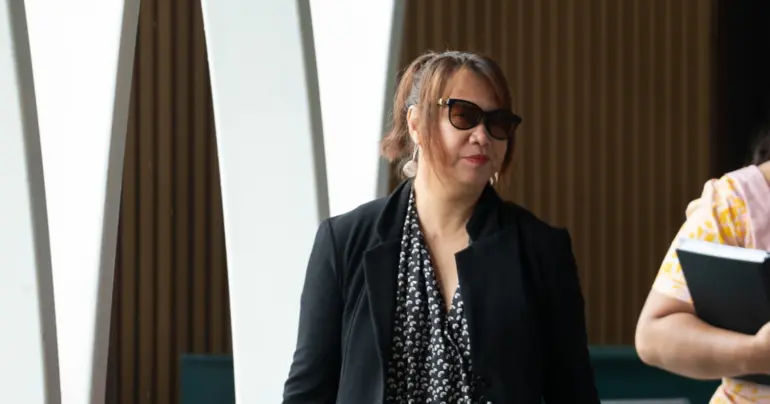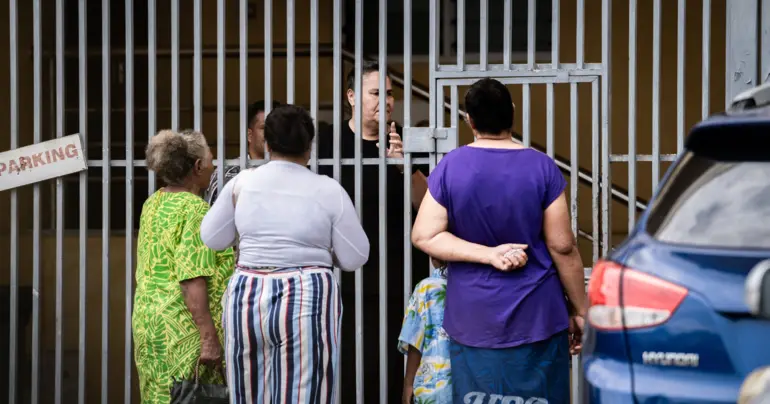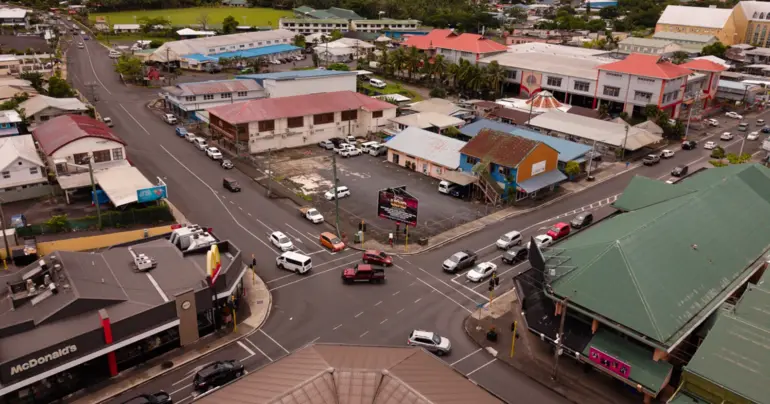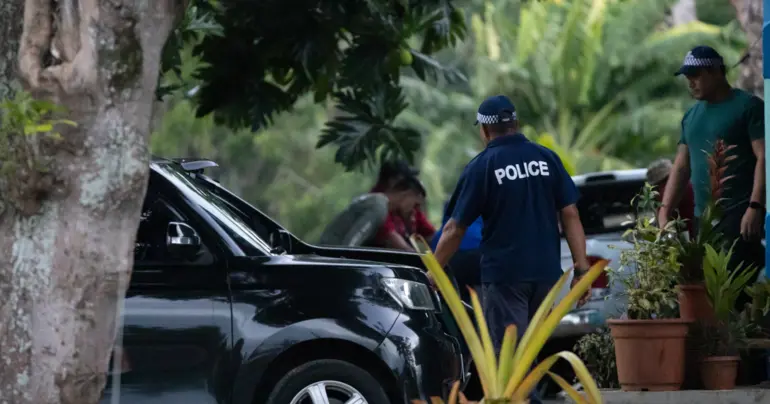Court to give election date
 By Matai'a Lanuola Tusani T - Ah Tong
•
04 June 2025, 7:30PM
By Matai'a Lanuola Tusani T - Ah Tong
•
04 June 2025, 7:30PM
The Electoral Commissioner testified that an extended period of four months and two weeks to prepare for polling would allow the office to deliver a credible and inclusive election.
Electoral Commissioner, Toleafoa Tuiafelolo Stanley, gave evidence in a motion brought by his office for declaratory orders on the exact date to conduct the early election. The Supreme Court will deliver its decision on the ex parte motion on Thursday afternoon.
In his affidavit, Toleafoa said the extension sought is not a delay for convenience but a necessary measure to preserve the integrity of the democratic process and the rights of citizens and candidates.
He said the compressed nomination window may discourage qualified candidates from standing for election, as they will face greater logistical and financial difficulties.
It is also the OEC's position that the lack of sufficient time also increases the likelihood of legal disputes over nominations and could compromise the electoral process.
The OEC submitted that it was in the national interest and consistent with the spirit and purpose of Article 64 of the Constitution that elections be conducted in a manner that is inclusive, transparent and participatory rather than rushed and potentially flawed.
The Fa'atuatua ile Atua Samoa ua Tasi (FAST) party was party to the proceeding and represented by lawyer Mauga Precious Chang and Lagaaia Fetu Lagaaia.
Mauga had queried the Commissioner of the OEC's ability to reach 80 to 90 per cent of registered voters by 27 June.
Toleafoa replied that it is uncertain and pointed out the office has extended working hours from 8 pm on weekdays and is open on Saturday from 9 am to 4 pm to accommodate registration.
He also told the court that in the last two weeks, the number of registered voters has been a record, with many people coming in.
Mauga also put it to the Commissioner about delivering an early election within three months, he replied yes, but it would not be an accurate and complete roll.
Lawyer Faimalomatumua Mathew Lemisio acted for the Human Rights Protection Party.
He queried Toleafoa if there was anything in the Constitution requiring 100 per cent registration of eligible voters. He replied no.
Faimalo also asked how the OEC measures an accurate roll for the election.
Toleafoa said this is measured by cleaning the roll to remove those who have died and ensuring that voters are listed under the correct districts by eligibility.
When it was put to him that there was nothing in the law stating a measurement of accuracy for the number of registered voters, he replied, Yes.
Faimalo then asked the Commissioner if he agreed that Samoans left registration to the last minute, and even if the court grants an extension on time, it will not change their mindset.
In response, Toleafoa said yes, he believed so.
Arthur Lesa acted for the new Samoa Uniting Party and asked about the administrative work in preparations for the election, if it could be done within three months.
Toleafoa replied it was possible, noting if the office procures more than 400 laptops from overseas and similarly with voting boxes shipped from New Zealand.
He added that it takes about two to almost three months for their procurement process to take place and deliver the necessary resources.
Papalii Malietau Malietoa represented the Samoa National Democratic Party (SNDP). He had queried the Commissioner if there was a difference in using the clear voting box from New Zealand and the wooden plywood box used in previous elections.
Toleafoa said they had the chance to observe elections in Australia and New Zealand, where clear boxes were used and the OEC has explored that option to use it to replace the wooden boxes for transparency.
The Constitution Democracy Republic Party was also present in the court, represented by Faamaualalo Oswald.
Chief Justice Satiu Simativa Perese asked Toleafoa to explain what he meant in his affidavit, "technically, the election can be conducted within three months."
He replied that while the election can be done within three months, the office would be under a lot of pressure in executing it within the limited time.
Senior Justice Vui Clarence Nelson had followed up with Toleafoa on what OEC's plan B is if the court does not grant the orders sought.
He replied that they will have to conduct the election within three months.
Justice Leutele Mata Tuatagaloa queried the Commissioner on how they calculated the timeline they are proposing for the early election.
Toleafoa said the shortened time proposed was based on what the office can do.
Attorney General Sua Hellene Wallwork, appearing for the OEC, submitted that the office is not asking the court to amend the laws but seeking guidance if the Electoral Act can be read and complied with the Constitution only for the purpose of the 2025 election.
She said a lot has been said about the electoral roll, but not much was raised about the nomination of candidates.
Sua submitted the nomination process puts pressure on the role of the OEC as well as the court, reminding of 19 objections filed in the 2021 General Election.
She said if the three-month strict timeframe is applied, it would not be a fair and inclusive election, considering electoral processes leading up to the polling day.
According to the AG, the proposed timeframe does not offend the Constitution, and the Electoral Act does not consider the event of an early dissolution of parliament.
Furthermore, she argued the Supreme Court has the jurisdiction to provide orders sought, and cases already ruled on by the court confirm the Supreme Court can construe the text of the Constitution.
The AG was then asked if Article 64 of the Constitution stated that there shall be a general election of the Legislative Assembly at such time within three months after every dissolution of the Assembly,and if it was mandatory or a directive.
Sua replied there shall be a general election is mandatory and the timeframe of three months is a directive, arguing it is possible for the court to extend that timeframe to hold a lawful and fair election.
Justice Tuatagaloa then asked the AG if what she was proposing was in effect changing the Constitution without the two-thirds majority in the House.
Sua replied she was not asking the court to change it, but asking for the provision to be interpreted with the Electoral Act in the current context and apply it in a way that the election is conducted in a fair and reasonable election.
The early general election has been triggered after the defeat of the national budget 2025-2026.
 By Matai'a Lanuola Tusani T - Ah Tong
•
04 June 2025, 7:30PM
By Matai'a Lanuola Tusani T - Ah Tong
•
04 June 2025, 7:30PM











